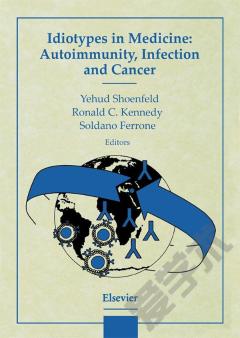Autophagy: Cancer, Other Pathologies, Inflammation, Immunity, Infection, and Aging
Autophagy: Cancer, Other Pathologies, Inflammation, Immunity, Infection, and Aging is a complete, authoritative examination of the role of autophagy in health and disease. Understanding this phenomenon is vital for the studies of cancer, aging, neurodegeneration, immunology, and infectious diseases. Comprehensive and forward thinking, this four-volume work offers a valuable guide to cellular processes while encouraging researchers to explore their potentially important connections. Understanding the role of autophagy is critical, considering its association with numerous biological processes, including cellular development and differentiation, cancer (both antitumor and protumor functions), immunity, infectious diseases, inflammation, maintenance of homeostasis, response to cellular stress, and degenerative diseases such as Alzheimer's, Parkinson's, Huntington's, amyotrophic lateral sclerosis, and prion diseases. Cell homeostasis is achieved by balancing biosynthesis and cellular turnover. In spite of the increasing importance of autophagy in various pathophysiological conditions mentioned above, this process remains underestimated and overlooked. As a consequence, its role in the initiation, stability, maintenance, and progression of these and other diseases (e.g., autoimmune disease) remains poorly understood. This work will broaden the knowledge base of academic and clinical professors, post-doctoral fellows, graduate and medical students regarding this vital biological process. Volumes in the Series Volume 1: Molecular Mechanisms. Elucidates autophagy's association with numerous biological processes, including cellular development and differentiation, cancer, immunity, infectious diseases, inflammation, maintenance of homeostasis, response to cellular stress, and degenerative diseases such as Alzheimer's, Parkinson's, Huntington's, amyotrophic lateral sclerosis, and prion diseases. Volume 2: Role in General Diseases. Describes the various aspects of the complex process of autophagy in a myriad of devastating human diseases, expanding from a discussion of essential autophagic functions into the role of autophagy in proteins, pathogens, immunity, and general diseases. Volume 3: Role in Specific Diseases. Explores the role of autophagy in specific diseases and developments, including: Crohn's Disease, Gaucher Disease, Huntington's Disease, HCV infection, osteoarthritis, and liver injury, with a full section devoted to in-depth exploration of autophagy in tumor development and cancer, as well as the relationship between autophagy and apoptosis. Volume 4: Mitophagy. Presents detailed information on the role of mitophagy, the selective autophagy of mitochondria, in health and disease, by delivering an in-depth treatment of the molecular mechanisms involved in mitophagy initiation and execution, as well as the role of mitophagy in Parkinson Disease, cardiac aging, and skeletal muscle atrophy. Volume 5: Role in Human Diseases. Comprehensively describes the role of autophagy in human diseases, delivering coverage of the antitumor and protumor roles of autophagy; the therapeutic inhibition of autophagy in cancer; and the duality of autophagy's effects in various cardiovascular, metabolic, and neurodegenerative disorders. Volume 6: Regulation of Autophagy and Selective Autophagy. Provides coverage of the mechanisms of regulation of autophagy; intracellular pathogen use of the autophagy mechanism; the role of autophagy in host immunity; and selective autophagy. Volume 7: Role of Autophagy in Therapeutic Applications. Provides coverage of the latest developments in autophagosome biogenesis and regulation; the role of autophagy in protein quality control; the role of autophagy in apoptosis; autophagy in the cardiovascular system; and the relationships between autophagy and lifestyle. Volume 8: Autophagy and Human Diseases. Reviews recent advancements in the molecular mechanisms underlying a large number of genetic and epigenetic diseases and abnormalities, and introduces new, more effective therapeutic strategies, in the development of targeted drugs and programmed cell death, providing information that will aid on preventing detrimental inflammation. Volume 9: Necrosis and Inflammation in Human Diseases. Emphasizes the role of Autophagy in necrosis and inflammation, explaining in detail the molecular mechanism(s) underlying the formation of autophagosomes, including the progression of Omegasomes to autophagosomes. * Presents the most advanced information regarding the role of the autophagic system in life and death and whether autophagy acts fundamentally as a cell survivor or cell death pathway, or both* Introduces new, more effective therapeutic strategies in the development of targeted drugs and programmed cell death, providing information that will aid in preventing detrimental inflammation* Covers recent advancements in the molecular mechanisms underlying a large number of genetic and epigenetic diseases and abnormalities
{{comment.content}}








 京公网安备 11010802027623号
京公网安备 11010802027623号